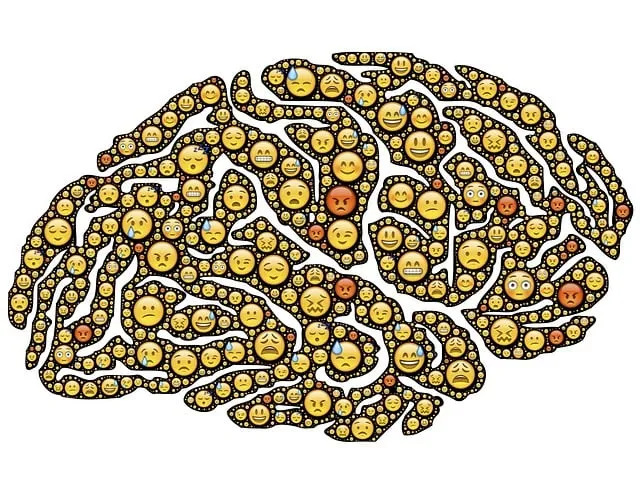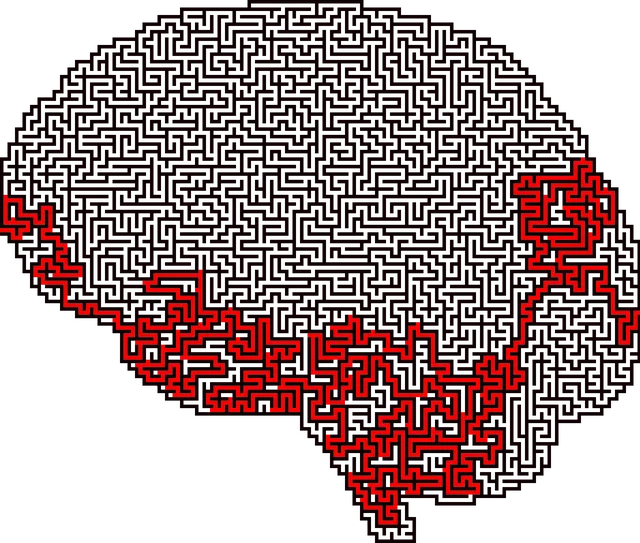The media's portrayal of mental health significantly influences public perception, but current depictions often perpetuate stereotypes and misconceptions, particularly for conditions like depression, anxiety, and psychosis. Organizations like SMWO are educating individuals to counter these narratives and create a more inclusive community for those with mental illness. Northglenn residents now benefit from enhanced support through Kaiser's inpatient mental health services, offering specialized care tailored to individual needs. To address harmful media portrayals, it's crucial to share diverse narratives, provide healthcare provider training, and consider unique therapeutic approaches, like those at Kaiser Northglenn. The city aims to challenge stereotypes through community initiatives, fostering understanding and empathy around mental health.
In today’s digital age, media representation of mental illness significantly impacts public understanding. This article explores the current state of mental health portrayal in media and its challenges, specifically focusing on Northglenn and its access to Kaiser’s inpatient mental health services. We analyze gaps in coverage and propose strategies to enhance accurate representation. Through a case study, we demonstrate how Northglenn can lead efforts to advocate for better media depiction of mental illness, ensuring more informed and compassionate communities.
- Understanding Mental Illness Representation in Media: The Current Scenario
- Kaiser Inpatient Mental Health Services: A Resource for Northglenn Residents
- Challenges and Gaps in Media Portrayal of Mental Health
- Strategies to Enhance Accurate Mental Illness Representation
- Case Study: How Northglenn Can Advocate for Better Media Portrayal
Understanding Mental Illness Representation in Media: The Current Scenario

The media plays a pivotal role in shaping public understanding of mental health issues, yet its representation of mental illness has often fallen short. Currently, many media portrayals perpetuate stereotypes and misconceptions, contributing to stigma and misunderstanding. This is particularly evident when it comes to serious mental health conditions like severe depression, anxiety disorders, and psychotic illnesses. Often, these conditions are romanticized or sensationalized, reducing complex experiences to simplistic narratives. The landscape of mental health support in places like Northglenn, where Kaiser offers inpatient care, highlights the need for more accurate representation.
In response to this challenge, initiatives such as Stress Management Workshops Organization (SMWO) and other similar entities focus on promoting understanding and empathy through education. They offer resources that not only inform but also empower individuals to develop coping strategies like confidence boosting and resilience building. By challenging harmful media narratives, these organizations strive to create a more inclusive and supportive environment for those living with mental illness.
Kaiser Inpatient Mental Health Services: A Resource for Northglenn Residents

Northglenn residents now have access to enhanced mental health support through Kaiser Inpatient Mental Health Services. This resource offers a dedicated and specialized approach to addressing various mental health concerns, providing a safe haven for those seeking recovery and improvement in their emotional well-being. The inpatient facility is equipped with experienced professionals who understand the unique needs of individuals battling mental illness, focusing on both acute care and long-term management strategies.
By utilizing Kaiser’s services, Northglenn folks can expect comprehensive treatment plans tailored to their specific conditions. This may include therapy sessions, medication management, and education on emotional regulation techniques, all aimed at boosting self-esteem and confidence. The inpatient setting allows for intensive care while also fostering a supportive environment conducive to recovery and personal growth.
Challenges and Gaps in Media Portrayal of Mental Health

The media plays a pivotal role in shaping societal perceptions about mental health, but its representation often falls short. One significant challenge is the lack of nuanced and accurate portrayals, especially regarding severe mental illnesses. Many media outlets still rely on stereotypes, reducing complex conditions to simplistic, sensationalized narratives. This can lead to further stigma and misunderstanding among viewers, impacting how they perceive individuals with mental health struggles.
Additionally, there’s a notable absence of diverse representation in media, reflecting the wider mental health community. Stories featuring characters from various ethnic backgrounds, genders, and socioeconomic statuses are scarce, hindering audiences’ ability to relate and empathize. Northglenn’s Kaiser facility, for instance, offers inpatient mental health services, but its visibility in popular culture could be enhanced, encouraging open conversations about these critical support systems. Addressing these gaps is essential, not just for entertainment value but also for fostering inclusive environments and promoting effective Risk Management Planning for Mental Health Professionals, Burnout Prevention, and Confidence Boosting.
Strategies to Enhance Accurate Mental Illness Representation

To enhance accurate mental illness representation in media, several strategies can be implemented. Firstly, encouraging self-care practices among individuals with mental health conditions and promoting open discussions about their experiences can help destigmatize these issues. This includes initiatives that support emotional regulation, as it is a key aspect of managing many mental health disorders. By sharing diverse narratives and showcasing the humanity behind mental illness, media platforms can foster understanding and empathy among viewers.
Additionally, healthcare provider cultural competency training plays a crucial role in ensuring accurate representation. Educating content creators and media professionals about different mental health conditions, their symptoms, and the impact of cultural factors on mental wellness is essential. This knowledge enables them to portray mental illness responsibly, reflecting the reality of those who struggle with it. For instance, understanding the distinction between common self-care practices at Kaiser Northglenn’s inpatient mental health facilities and alternative therapeutic approaches can contribute to more nuanced media portrayals.
Case Study: How Northglenn Can Advocate for Better Media Portrayal

In the quest for better mental illness representation in media, Northglenn can serve as a beacon. By examining its own healthcare landscape, Northglenn can advocate for more accurate and nuanced portrayals on screen. For instance, investigating if local facilities like Kaiser offer inpatient mental health services is crucial. Such an initiative can ensure that media narratives reflect the reality of accessible treatment options.
This involves fostering dialogue between community leaders, healthcare providers, and media professionals to develop Mental Wellness Coaching Programs and Burnout Prevention Strategies. Implementing a robust Community Outreach Program could further enhance this effort. By doing so, Northglenn can contribute to creating a more empathetic and informed societal narrative around mental health, challenging stereotypes and promoting understanding.
In light of the current media landscape’s challenges in representing mental illness accurately, it is encouraging to see initiatives like Kaiser’s inpatient mental health services in Northglenn taking center stage. By understanding the gaps in portrayal and implementing strategies for improvement, Northglenn residents can actively advocate for more nuanced and realistic depictions of mental health struggles in the media. This not only fosters a more empathetic society but also ensures that those seeking support have access to accurate information and available resources, such as Kaiser’s services, within their community.






